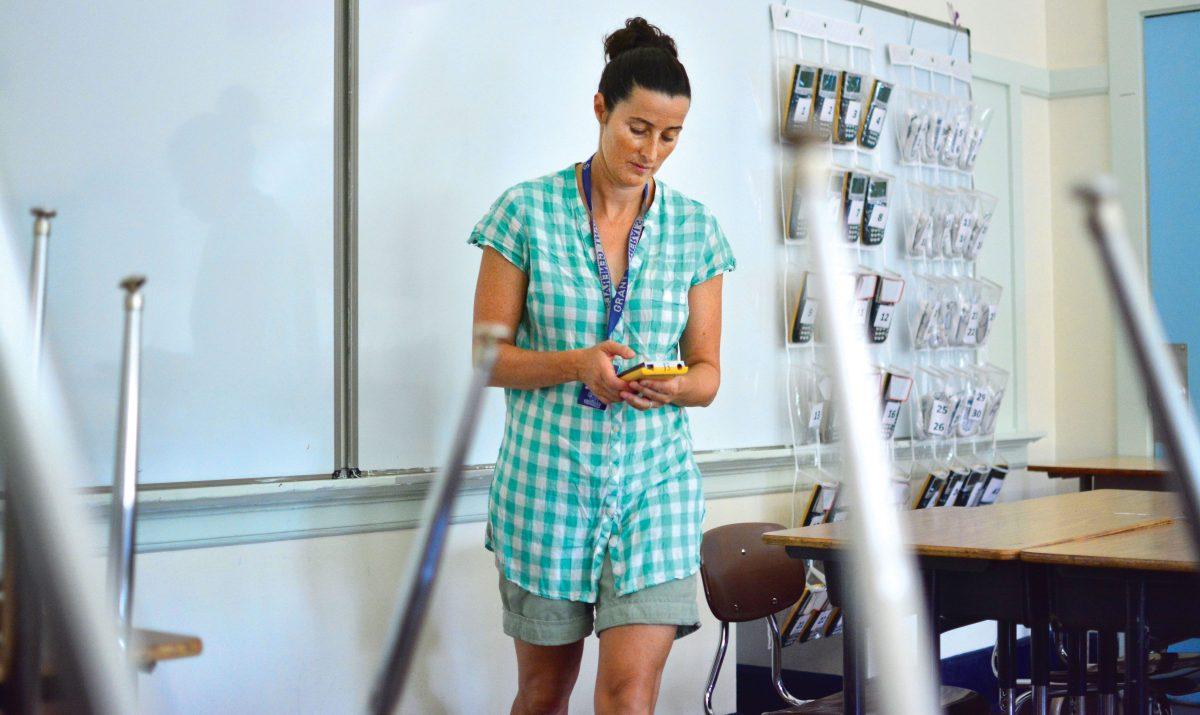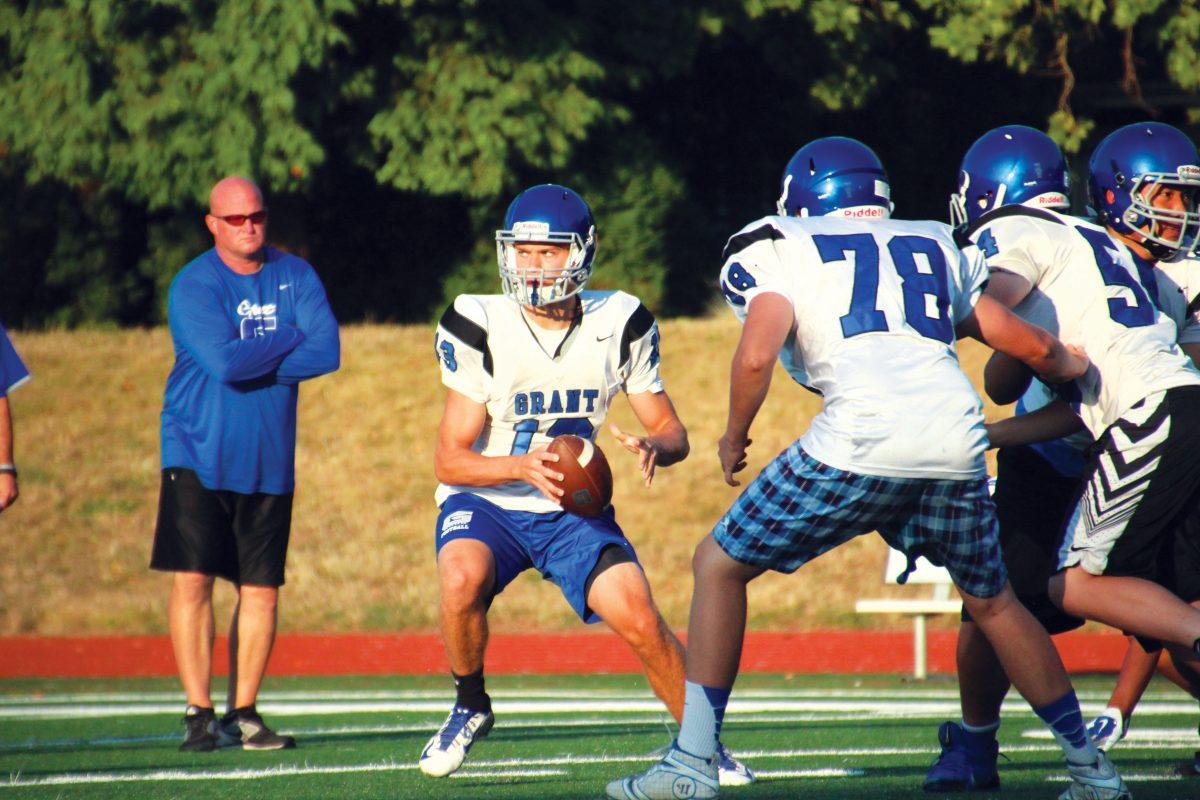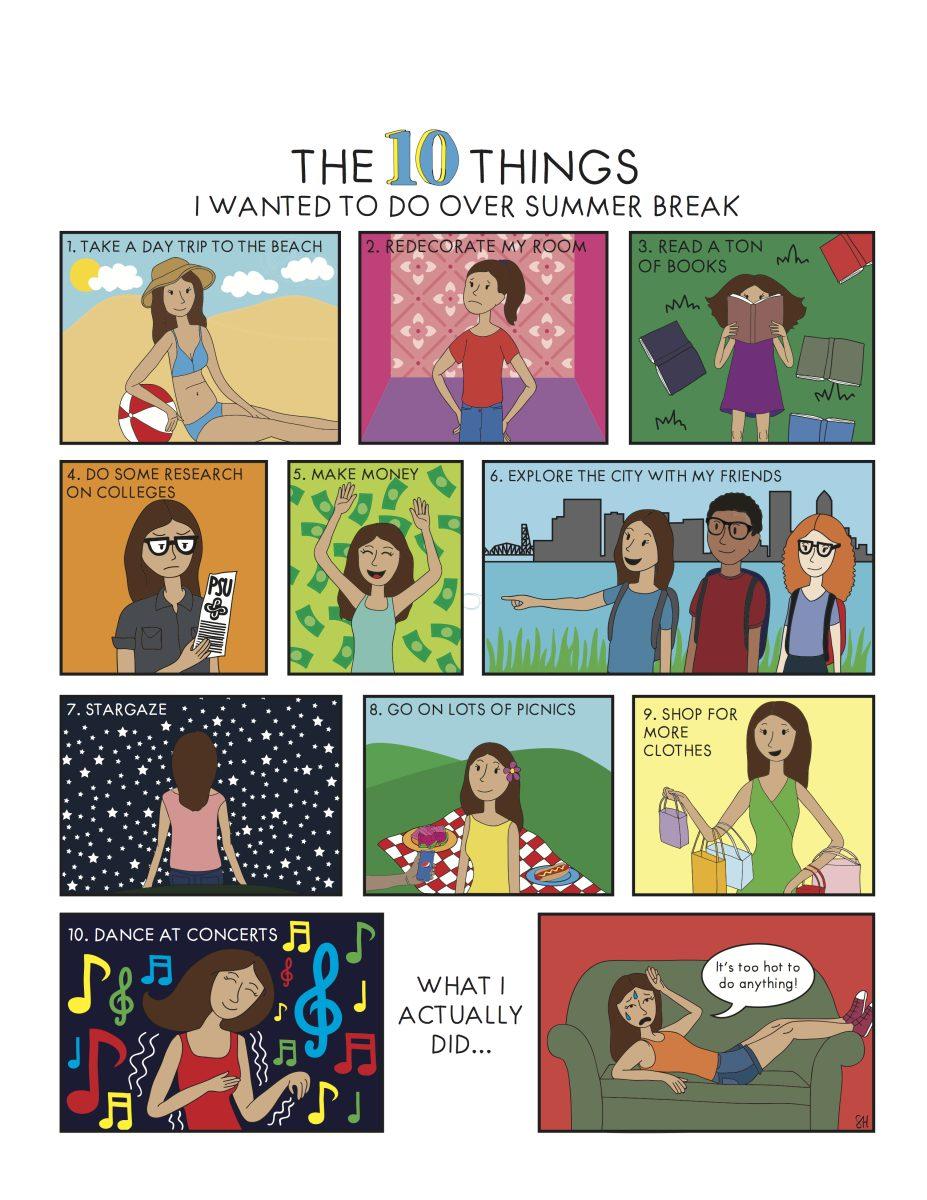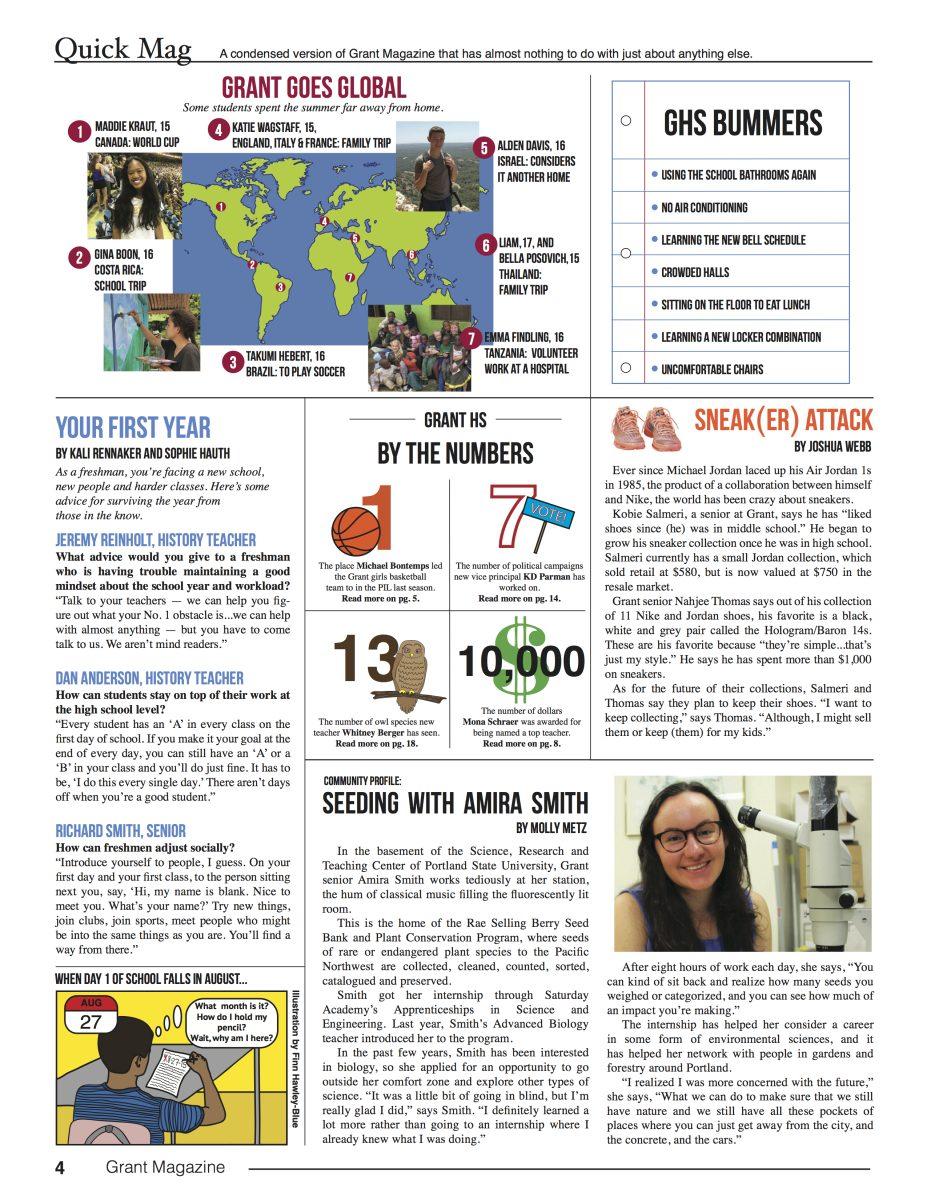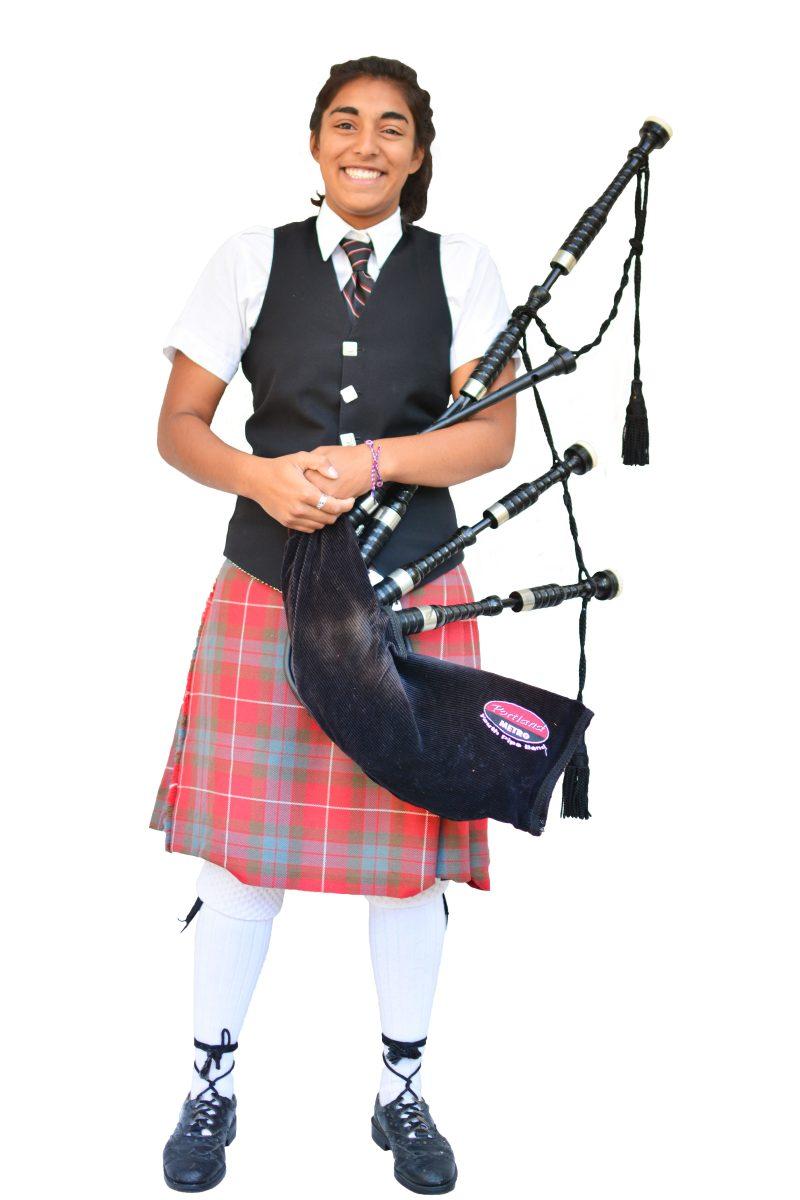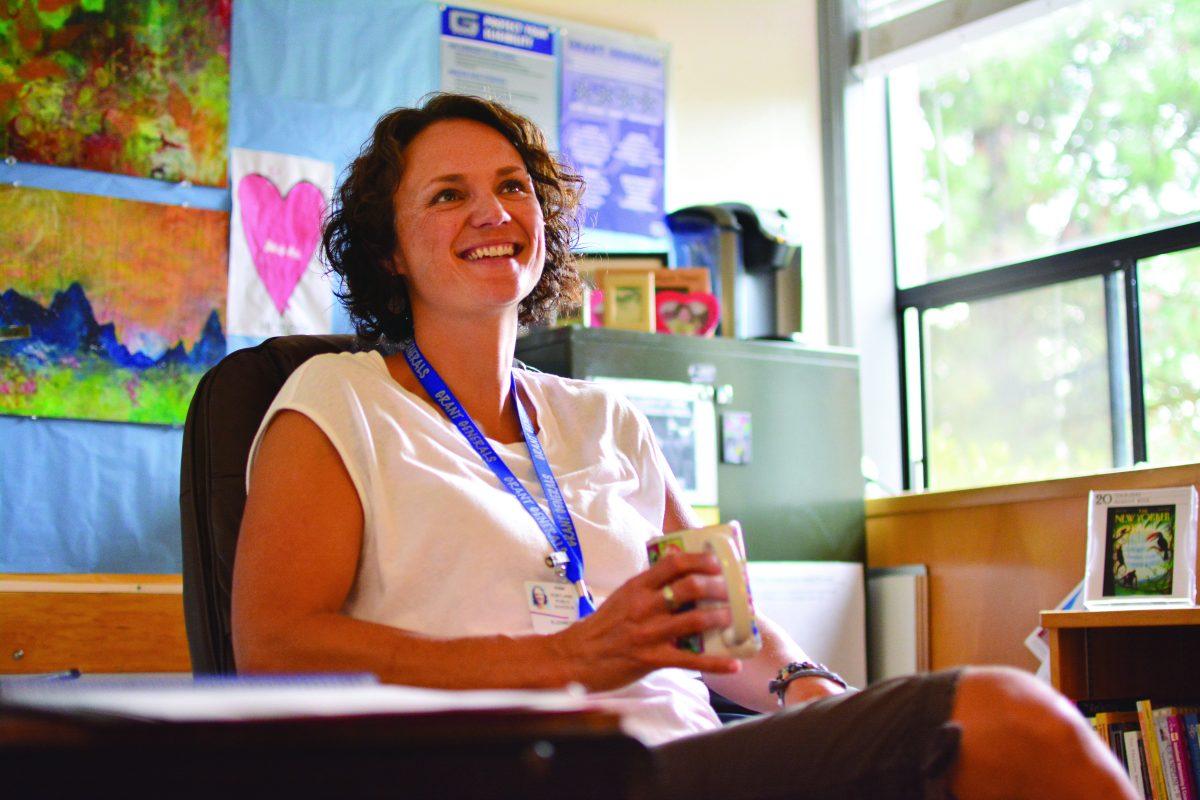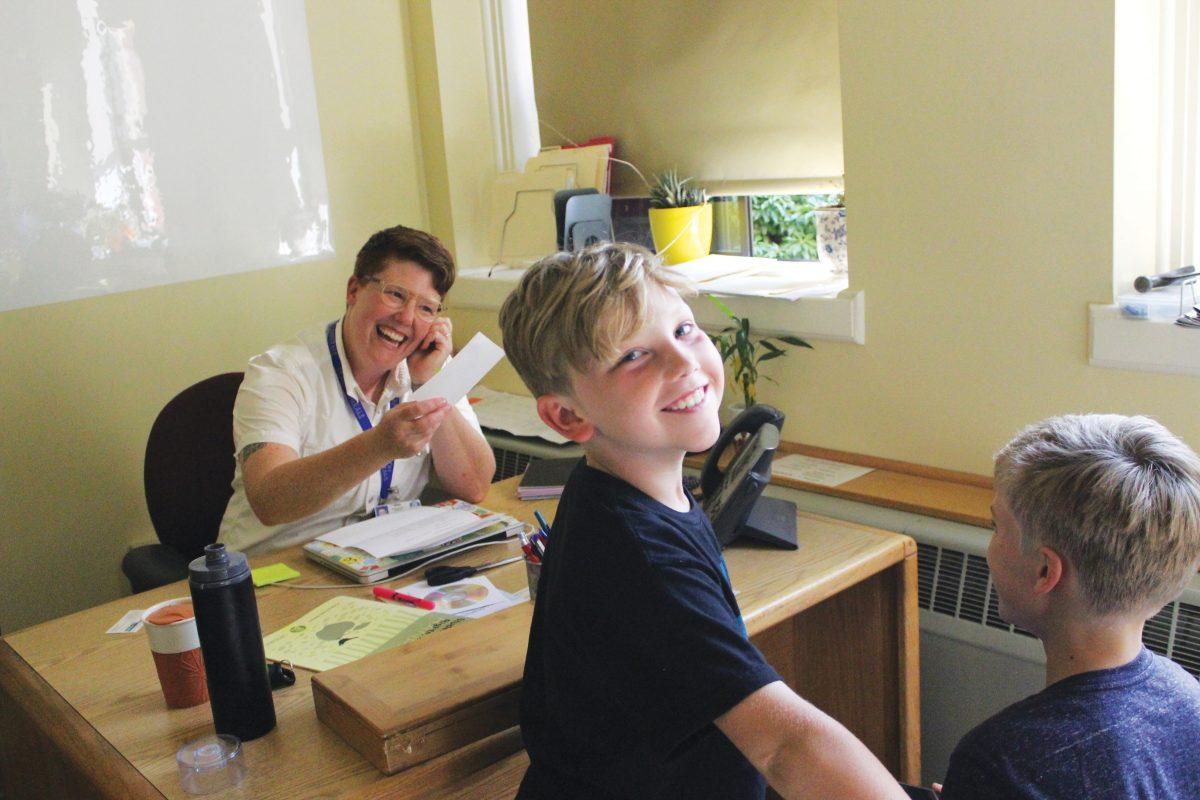
New vice principal KD Parman sits at her desk behind a laptop that’s covered in colorful stickers. Teachers and administrators move about as Grant High School swings into operation and student schedules are prepared.
A special education teacher rushes in. They’d been emailing about scheduling for her students and hadn’t met in person.
The teacher offers a homemade blackberry scone for Parman’s trouble. “Well, I haven’t done it yet,” Parman says, laughing. But “I can make this happen. This is easy.”
They exchange pleasantries and Parman dives back into work. Taking care of such details is easy for Parman, especially since she’s seen her share of challenges. From a life where she faced discrimination for being gay, she’s learned not to shy away from speaking her mind.
“I don’t do a good job of, like, pretending everything’s fine if I don’t think it is,” she says.
She uses her experiences as fuel to advocate for the underprivileged. “She has always fought for equity inside the classroom, outside the classroom, I think in every situation,” says her friend and former co-worker Betsy Halvorson.
After working as a teacher in North Portland for 14 years, she joins Grant – a school with a different socioeconomic and racial demographic than what she’s used to. Even though Grant’s population is becoming less diverse, Parman plans to apply her philosophy of creating an environment where everyone feels welcome.
“What can we do as students, as teachers, as people in our community to help people who don’t have a voice, have a voice?” she asks.
Finding her voice came early for Parman. She was born in 1974 as Kristan and raised in Southeast Portland with her brother and sister. Her mother was a school secretary and her father was a mailman. Her mother called her Kris.
When she was four, a boy named Chris moved next door. Parman’s older brother, Bryan, refused to call her Kris since it was the boy’s name. So her mother came up with KD, using the first initial of her middle name.
Parman was a self-described tomboy, preferring to play sports with her brother and his friends.
But it was playing Little League baseball that gave her one of her first tastes of discrimination. She was the only girl who made it onto the All-Star team. During practice, she ran so hard that she couldn’t breathe.
Her coach loved it. “That’s the kind of determination I’m looking for,” she remembers him saying. Yet, she never got a minute of playing time. “I remember thinking, ‘This is because I’m a girl,’” she says.
She often got into heated debates with her older brother, over anything from abortion rights to the death penalty. Bryan Parman says he had conservative leanings when he was younger and he sparred with his younger sister. “She was very vocal about her beliefs,” Bryan Parman says.
It was when KD Parman was attending Franklin High School that she began to question her sexuality. But the process wasn’t easy. “It was a very different time,” says Parman.
She remembers when two gay men moved next door and her parents referred to them as “those people.” At the same time, multiple anti-gay initiatives were being placed on voter ballots in Oregon.
She knew she was gay, but kept it from her family members because she worried she would disappoint them.
Instead, she threw herself into school and sports. She took honors classes and was the student body president as a senior. “If I was really busy, there wasn’t the ‘Why aren’t you dating anyone’ question,” she recalls.
When it came time to apply for college, Parman knew she wanted to go far away. “I knew I needed to kinda get out of my family and get out to figure out who I was,” she says.
She went to William and Smith College, a small liberal arts school in Geneva, N.Y. But college in New York wasn’t quite what she expected. She joined the basketball team her freshman year and discovered that many of her teammates were homophobic. She didn’t let it phase her, though.
“I just decided I need to start being honest with who I am because people say those things, but I don’t necessarily have to hear it all the time,” she says.
She came out to a few people on the team who were supportive. “That’s why I feel like trying to be an ally for other causes is really important because sometimes it’s hard for the person that’s being oppressed to say something, but it’s easier for someone else,” she says.
During her first year, Parman came out to her family. Her parents were supportive, but told her they were worried about how she’d be treated.
In October of her sophomore year, her mother passed away from breast cancer. Parman stayed home for a term to be with her family.
“I think the hardest part was this huge thing had happened in my life and I went back to college where a huge thing hadn’t happened in the lives of my friends,” says Parman.
She worked hard to move forward, and began pursuing a teacher’s license. She was required to spend time as a student-teacher in a classroom, driving to serve in a class in nearby Waterloo, N.Y.
In the classroom, Parman overheard two boys call each other “faggot.”
“You need to do something,” she told the teacher, who chuckled and walked away. When the class was over, Parman confronted the teacher. She told Parman: “Boys will be boys.”
“I don’t do a good job of, like, pretending everything’s fine if I don’t think it is.” – KD Parman
When the term was over, she quit and stopped pursuing her license.
After college, she worked in the political field, including spending time in San Francisco and Chicago on local and federal issues.
But she returned to Portland where she continued to advocate for environmental rights through multiple campaigns and jobs.
Around the same time, Parman began dating a woman who later worked for Basic Rights Oregon, a nonprofit that fights for the rights of LGBTQ communities.
In 2000, the second Measure 9, which prohibited public school educators from “encouraging, promoting, sanctioning homosexual, bisexual behaviors,” was placed on the ballot. If the measure passed, it would’ve forbidden educators from talking openly with students about sexual preference for gays and lesbians.
Parman immediately took action to defeat the measure. She worked for Basic Rights Oregon as the statewide field director and oversaw all staff members who worked with volunteers on that campaign.
Many of the volunteers were students who were involved with their schools’ Gay-Straight Alliances. Sometimes Parman met with them to talk about the campaign. She remembers 16-year-olds approaching her with tears in their eyes, begging her to do everything she could to defeat the measure.
“It just really weighed heavy on me,” she says. “I was just like, I can’t feel this way all the time.”
That was when she realized there was another avenue she could take: teaching. Her interest in education was sparked again.
“In the schools, it’s just more direct,” says Parman. “You can work directly to make changes.”
She knew she wanted to teach in North Portland. At George Middle School, students who are economically disadvantaged made up most of the student body. At Roosevelt High School, where George feeds into, nearly 70 percent of the students come from communities of color.
“I really wanted to work with kids who were racially diverse and kids that didn’t have the same experience I had growing up,” she says.
She student taught at George and Roosevelt for a year before securing a position as a science teacher at George in 2002.
While she was at George, she coached soccer and basketball at Roosevelt. It was also during this time that Parman became pregnant.
In 2004, gay marriage was legalized and Parman and her partner – the woman she had started dating – married. The act was revoked shortly after. A few days later, Parman had her baby boy named Emmett.
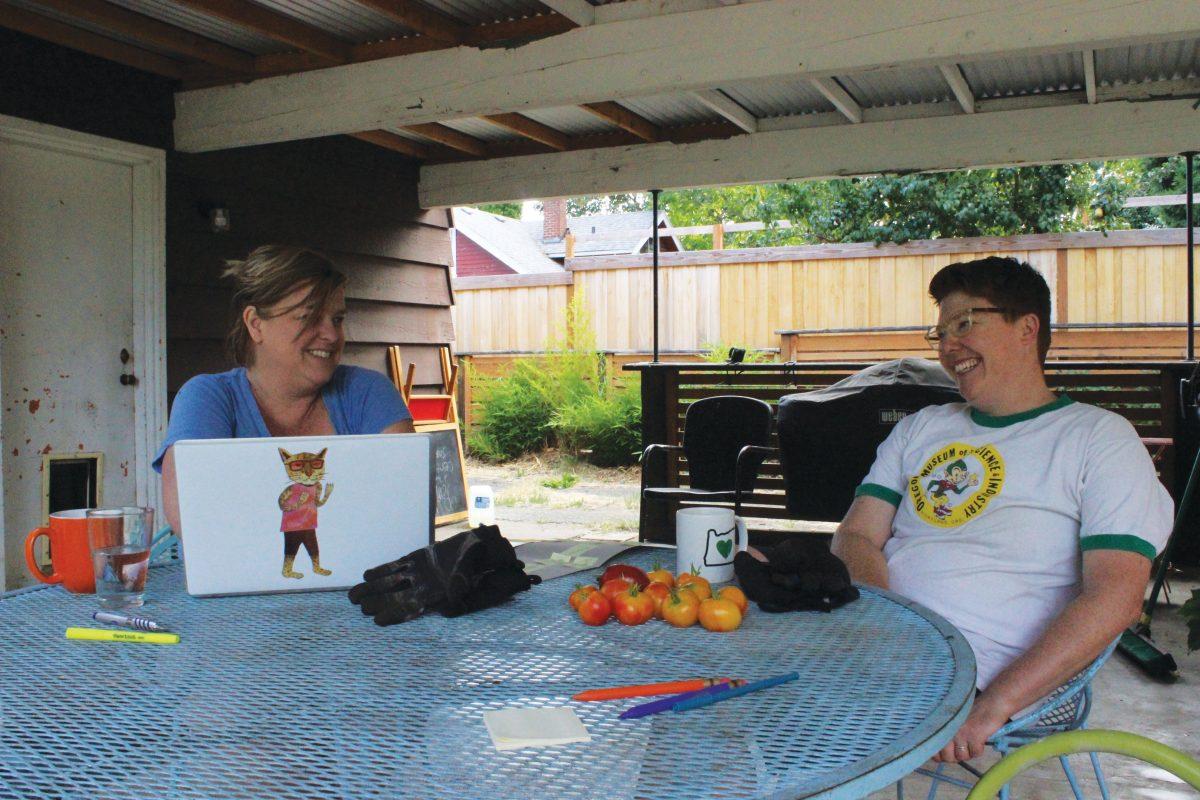
At George, her friend Terri Gassman was the elective teacher for the Advancement Via Individual Determination program. Known as AVID, the program is geared toward students who are historically unlikely to go to college. Many of the students aren’t reaching their full potential and need an extra boost.
When she told Parman about the program, it was an instant match. She joined the AVID site team and later became a site coordinator at George.
Motivating middle school students to think ahead to college was a challenge, Parman says. Some were failing classes. Others complained that AVID was too much work.
Gassman wanted to steer some of these students out of the program. But Parman always pushed back.
“To me, AVID was opening a door for kids and I wasn’t really (supposed) to close the door,” she says.
Gassman remembers Parman defending the students. “She would encourage me to talk more with the student,” Gassman recalls. “I had other coordinators who, if I had gone to them and said, ‘This behavior is terrible. They’re failing every class. They have no business in AVID.’ They would have said, ‘They’re out.’”
In 2006, Parman and her partner had a second boy who they named Griffin. Eventually they decided to split up, but they’ve remained friends.
That same year, Parman met Amy Whitney, who taught elective classes and AVID. They connected through a love of their work. They formed a friend group with a few of the other teachers and often talked about education philosophies and how they could push themselves as teachers. Later, Whitney and Parman began dating.
Parman stayed at George, working as an instructional coach and school improvement specialist. In 2013, she applied for a job at Roosevelt and got it. She taught environmental and forensics science, and continued her AVID work. She also became the advisor for the school’s Gay-Straight Alliance.
At Grant, Parman will be in charge of curriculum and testing. She wants to look into closing the achievement gap. Like other schools in Portland, Grant’s data shows a large percentage of students of color are not performing as well as white students.
“It raises a lot of questions for me,” says Parman.
Today, Parman maintains a balance between work, family and hobbies. She lives in Northeast Portland with her sons and Whitney, who is a principal at Kelly Elementary in Southeast Portland. In her spare time, Parman does woodworking and tends to her backyard garden.
At Grant, she has big shoes to fill with the loss of the former vice principals. But everyone who knows Parman agrees that being an administrator is a perfect fit for her.
“I think she’ll be well liked,” says Halvorson. “It’s her personality. It’s her not being judgmental and kind of having an open mind to every type of person.”





























